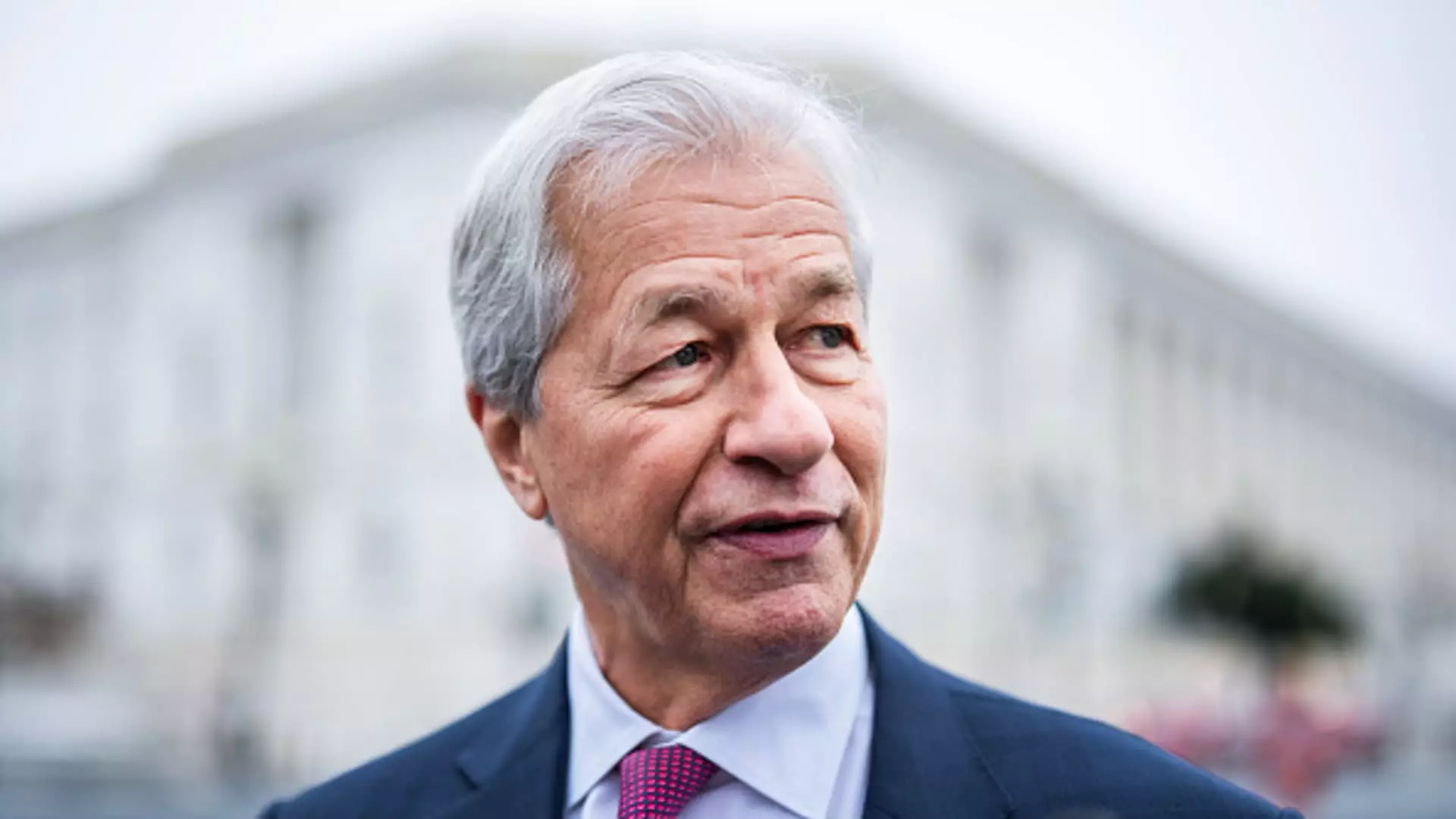In a recent interview, Jamie Dimon, the CEO of JPMorgan Chase, expressed his concerns about the operational inefficiencies within the U.S. government. As the Trump administration proceeds with structural changes and the elimination of thousands of federal jobs, Dimon’s remarks resonate with significant implications for how federal agencies function. The overarching narrative is not just about budget cuts or the reduction of personnel; it questions the very effectiveness of the systems in place. Dimon highlighted that government incompetence transcends mere financial waste, focusing instead on real outcomes and the real-world impact of these inefficiencies on citizens.
Dimon’s assertion that the government requires extensive reform opens a dialogue on what these changes should encompass. Rather than merely slashing budgets, he indicates a need for a profound reassessment of policies and procedures. He asks critical questions: Is taxpayer money being spent effectively? Are federal agencies delivering the results the public deserves? This inquiry strikes at the heart of governmental accountability, urging lawmakers to evaluate not just fiscal responsibility but also the qualitative results of their decisions.
Dimon’s reluctance to give a definitive answer regarding his support for the Department of Government Efficiency (DOGE) underscores a complex view of governmental reform. While he acknowledges the necessity of scrutinizing operational costs, he is cautious about the potential for overreach. He emphasizes that any reform must be confined by legal and ethical considerations, warning that if DOGE operates beyond its mandate, judicial systems will intervene. This highlights a balancing act between the need for efficiency and the preservation of governmental integrity.
The ramifications of Dimon’s statements extend beyond just government operations; they touch upon the corporate world and its interdependencies with public policy. His call for a more competent federal structure has implications for businesses that rely on stable and efficient governmental processes. With an economy increasingly influenced by international events—such as the ongoing conflict in Ukraine and tariff adjustments—Dimon’s perspective offers insight into how corporate leaders are navigating a volatile political landscape. The relationship between the government and private sector is, therefore, critical in driving economic growth and ensuring stability.
Beyond government efficiencies, Dimon also addressed the future of work within his organization, advocating for a return to in-office environments. This stance echoes broader conversations about work culture, productivity, and employee engagement amid changing societal norms catalyzed by the pandemic. As companies reassess their operational models, parallels can be drawn between internal organizational efficiency and broader governmental restructuring efforts.
Jamie Dimon’s reflections on the inefficacies embedded within the government prompt necessary conversations about reform and accountability. The intersection of public and private sectors continues to evolve, demanding that both entities adapt strategically to ensure that the ultimate beneficiaries—citizens and consumers—receive the quality of governance and services they deserve.

